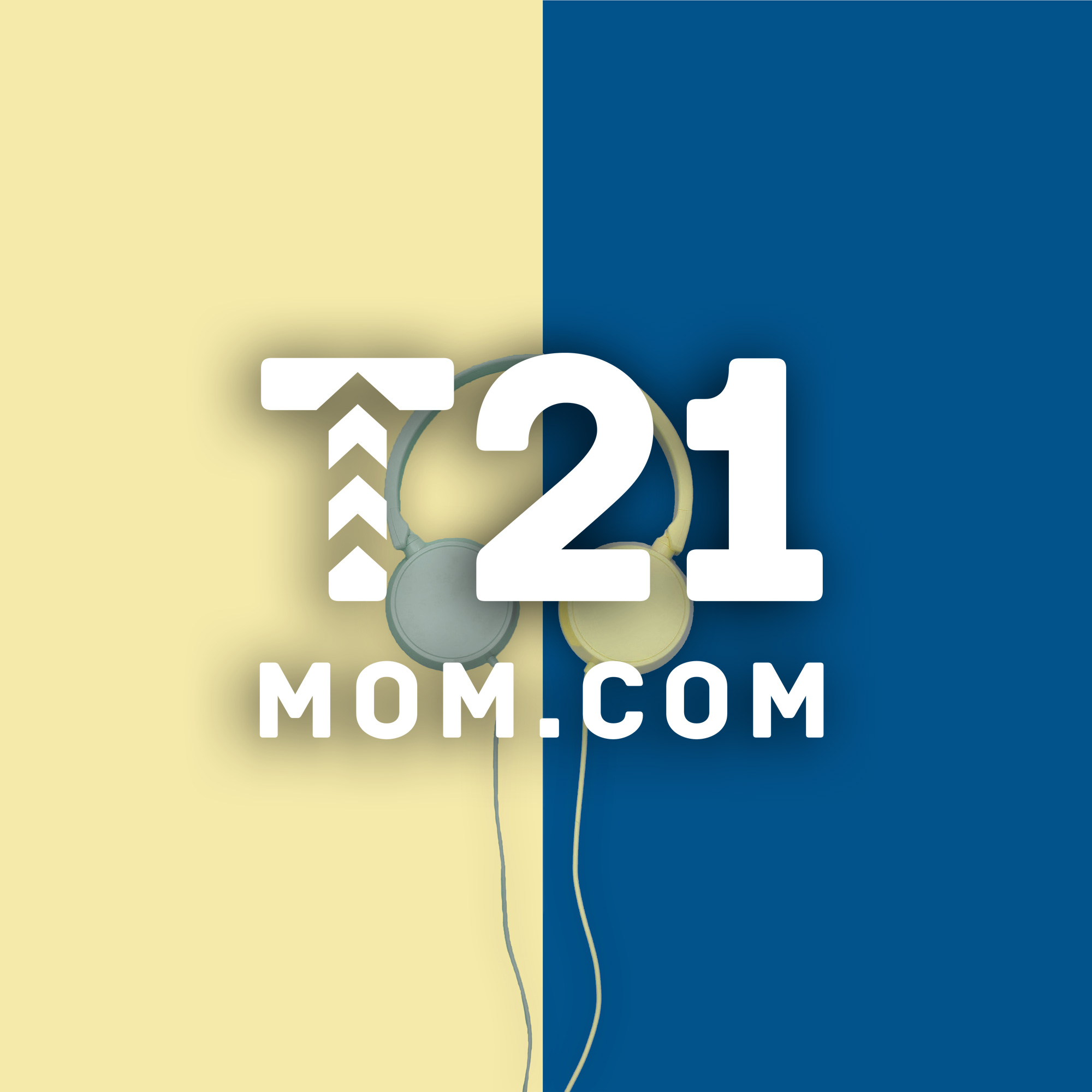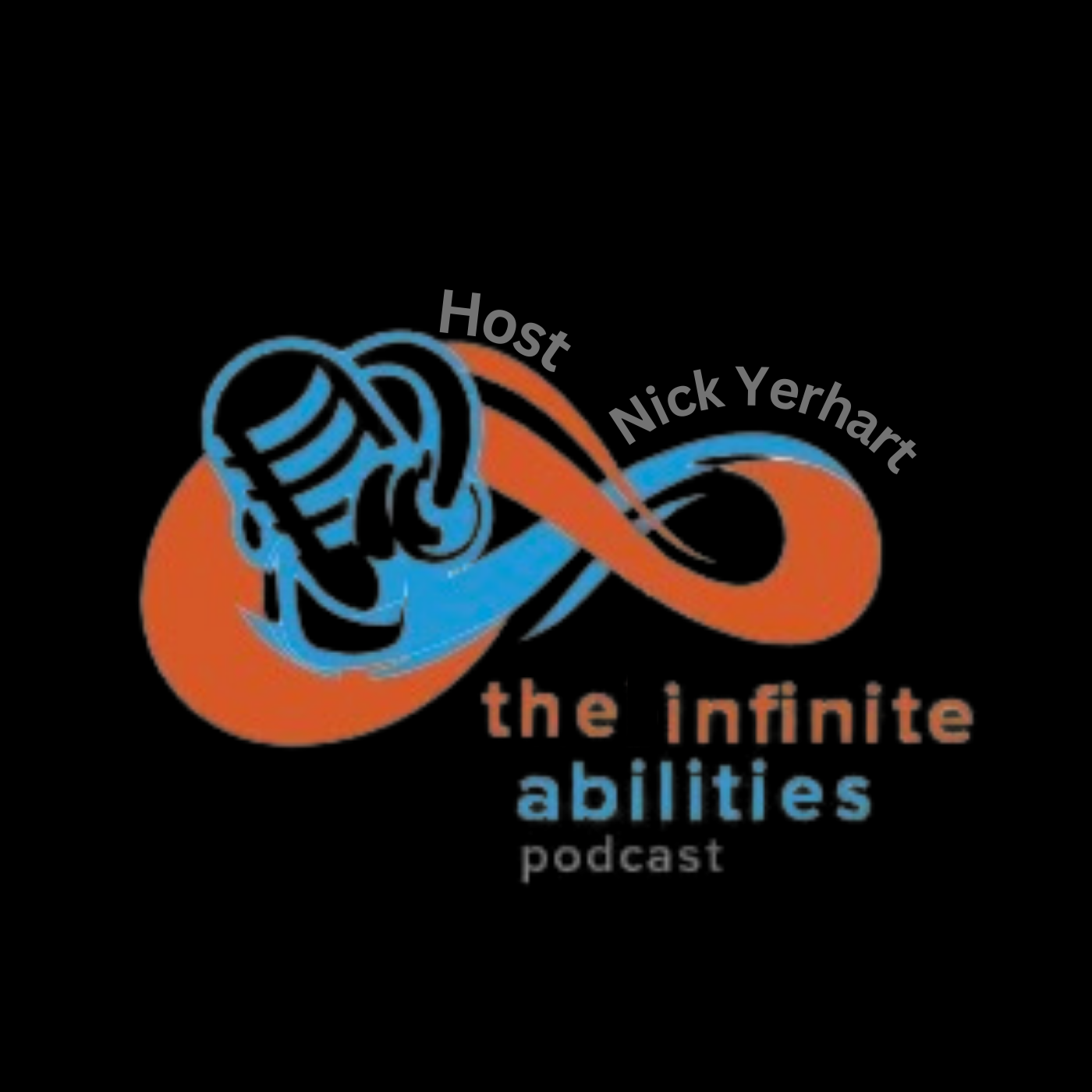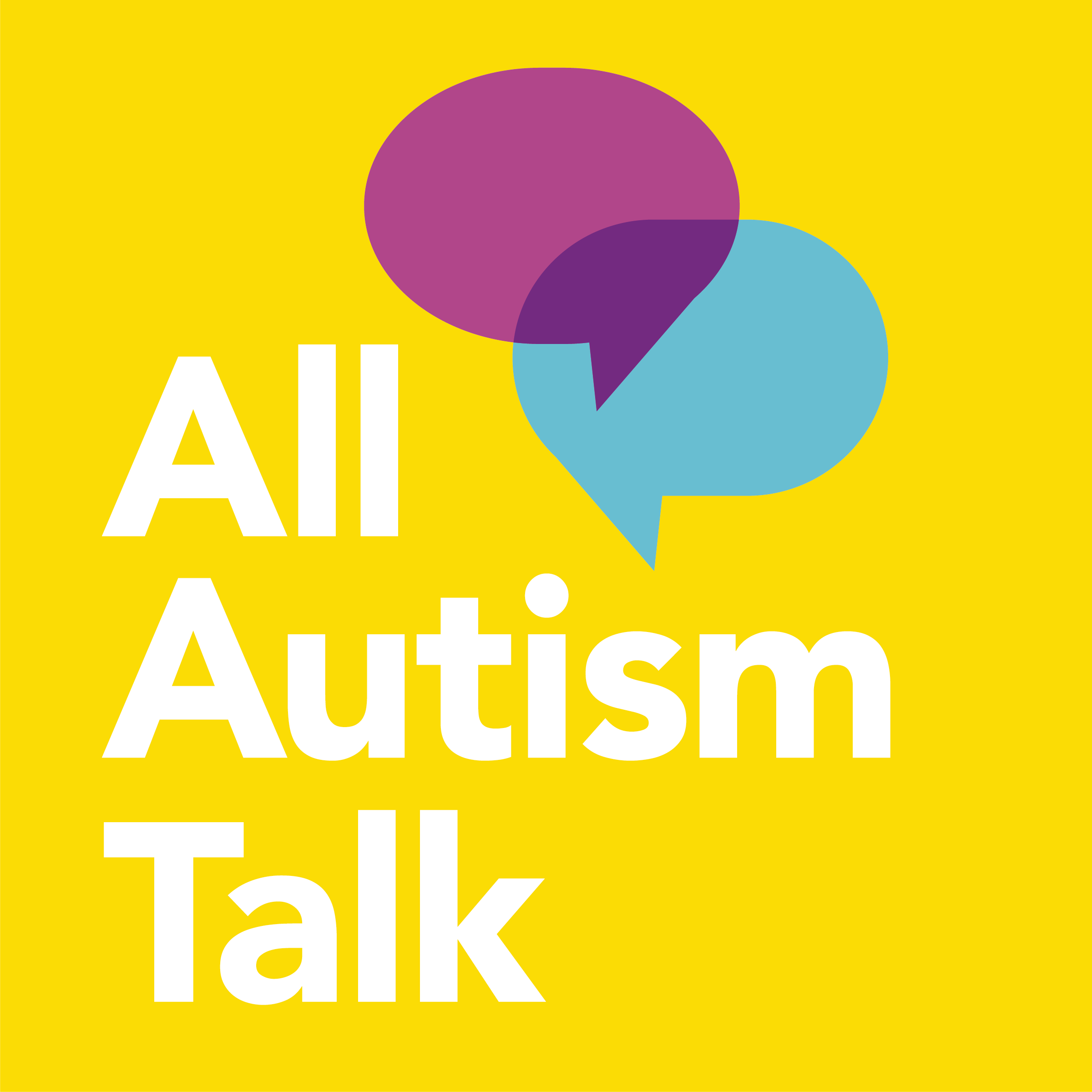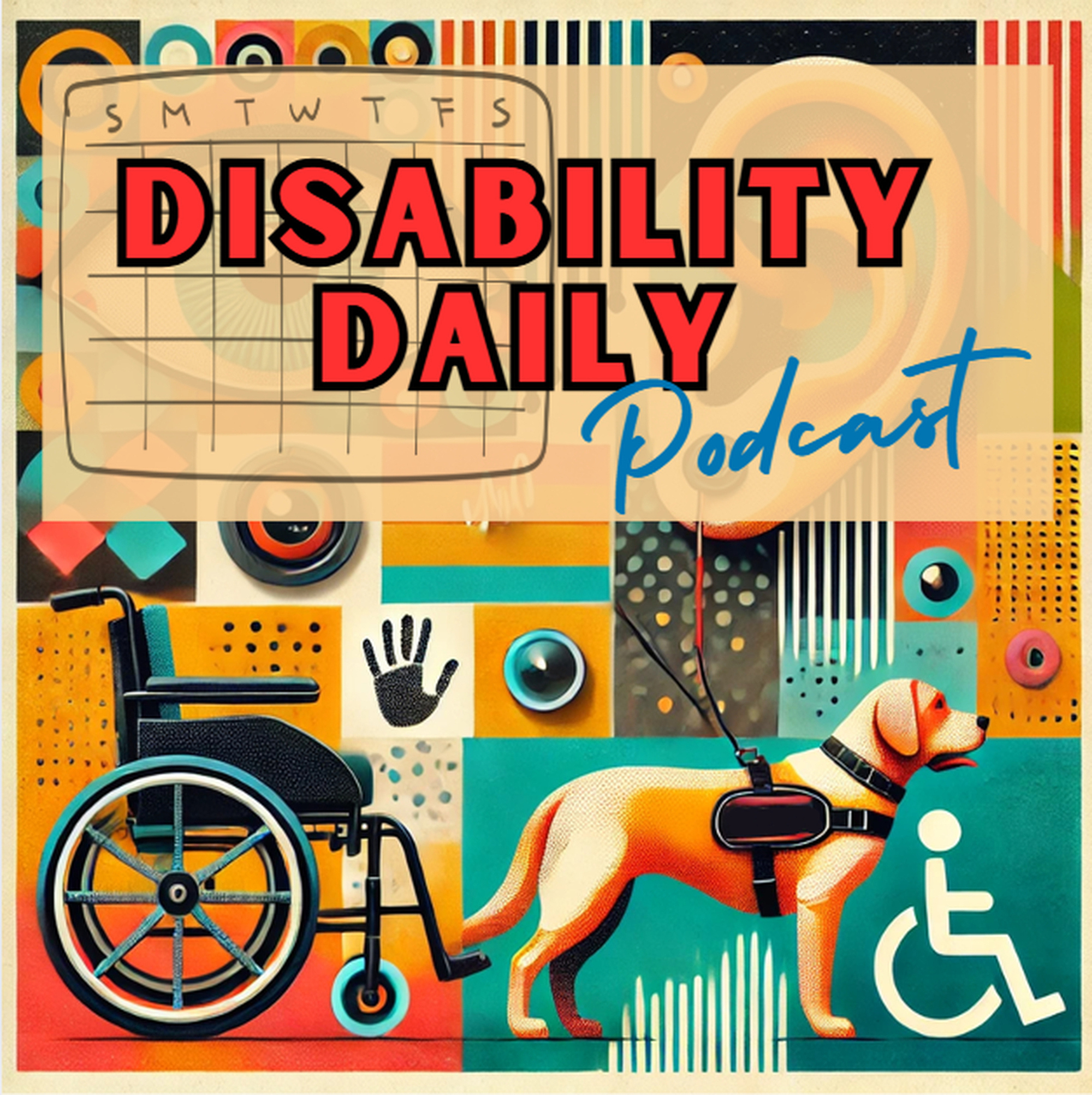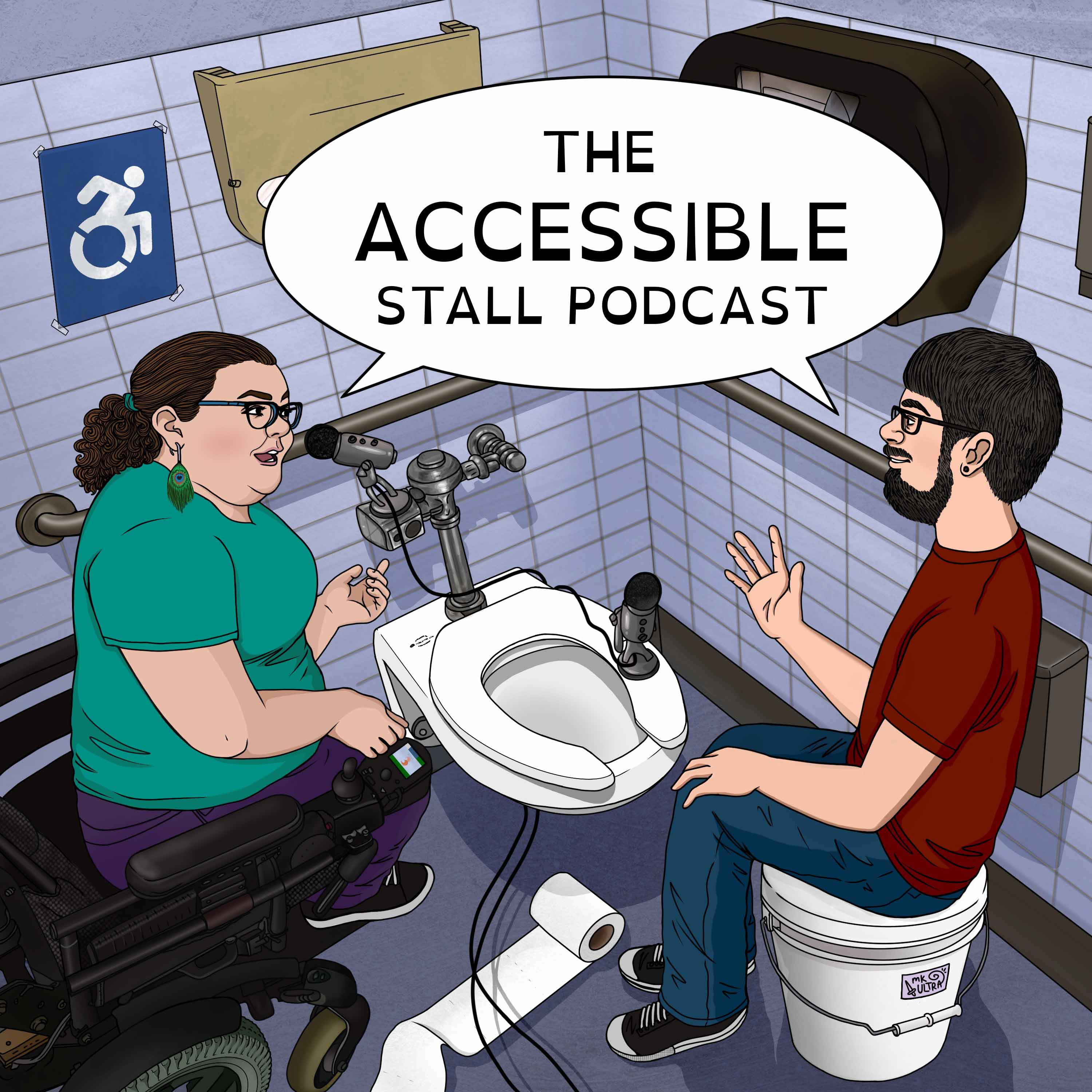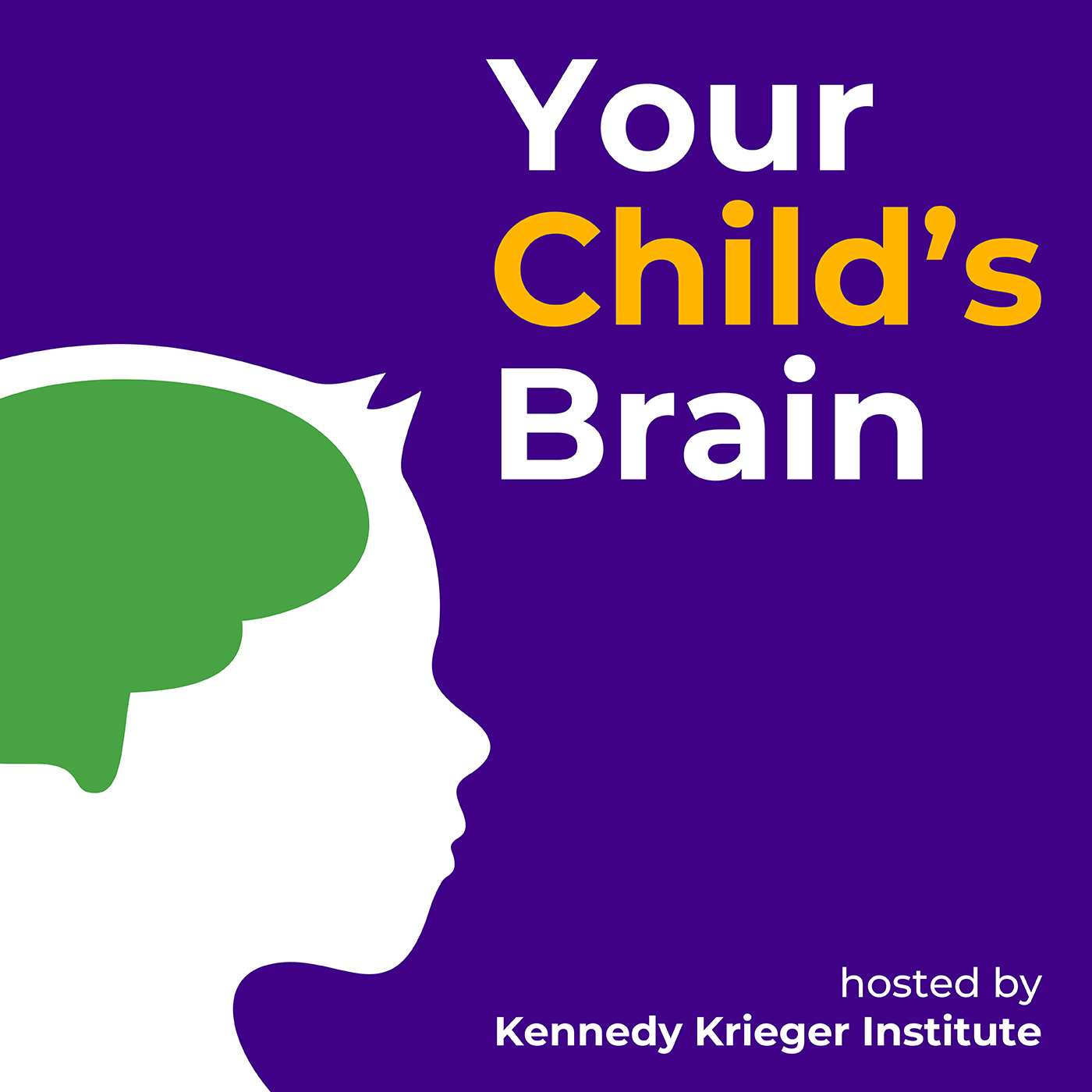
The Post Secondary Transition Podcast
A podcast focused on the ins and outs (and everything in between) of the secondary transition process for families of students with disabilities! Hosts Meghan (Smallwood) and Patrick (Cadigan) serve as supportive guides, leading families step-by-step up each rung of the transition ladder.
Also check out our parent website: https://www.postsecondarytransition.com
The Post Secondary Transition Podcast
053. Interview: Audri Levering (Parents Place of MD) & Supported Decision Making Pt. 2
Hosts Meghan (Smallwood) and Patrick (Cadigan) continue their talk with Audri Levering, Transition Program Coordinator at Parents Place of Maryland (PPM). They discuss options available to families as they consider guardianship. They talk about the need to create opportunities for individuals to make choices, the value of lessons learned from failure and avoid doing things for children with disabilities that they can do for themselves. Join the conversation!
Episode Keywords:
guardianship, parents, decisions, support, disabilities, supported decision making, IEP, transition, choices, Maryland
Links:
MD Developmental Disability Council's Supported Decision Making Fact Sheet (link)
MD Developmental Disability Council's Supported Decision Resources (site)
Charting the Life Course (site)
Functional
Parents Place of MD (site)
Parents Place of MD Resources (page)
Alternatives to Guardianship (page)
Supported Decision Making (site)
To download a copy of a transcript for this episode or any of our previous conversations, click here.
Also visit our Podcast webpage to find links to all of our other discussions; go to www.p2transition.com.
Additional information about post-secondary transition can be found at our website.
The Post-Secondary Transition Podcast Facebook page.
Visit our YouTube Channel to find additional video resources.
Intro/Outro music by AudioCoffee from Pixabay.
Transition music by Joseph McDade from Transistor.
The transition process starts at the age of 14 and carries all the way to exit. No lie. It is a lot of information, there is a lot out there and there is a lot to consider. Now, of course, trying to do it all at once can feel really consuming. So we're here to get the conversation going. We are here for the Post Secondary Transition podcast where we have conversations around the ins and outs, and everything in between the transition process for families of students with disabilities. I'm one of the hosts. My name is Patrick Cadigan. I am a special education teacher and I do have a co host and who would that be?
Meghan Smallwood:Hi, I'm Meghan Smallwood, and I am a public school transition coordinator.
Audri Levering:All right, we're just going to jump straight into part two of our discussion about supported decision making with parents place of Maryland's Audrey levering and we are joining that conversation already in progress. But I'd love to talk now about supported decision making.
Meghan Smallwood:Yeah, and I would love to hear it because I feel like to when we, when we, when I present to families about guardianship, and the alternatives, and I explain a little bit like no, you will, about you know, they have their their choice heard by, you know, people that they select as that person that to help share with many families feel like their child cannot cognitively make those choices. So I have to do guardianship because they're not going to be able to tell me this. So it's so important to realize that everyone can make choices, and it just looks so different. And it's something that needs to be valued, you know.
Audri Levering:I agree. I absolutely agree. And I think that sometimes I talk when I meet a parent like that, then they say that I say, what decisions can your child make now? And sometimes they're stuck. And I understand there's a broad spectrum of individuals with disabilities. My daughter does have an intellectual disability. But even amongst individuals with intellectual disabilities, we recognize there's about there's a broad spectrum of communication challenges, yes, right. Different modes of communication that people use, but you got to build that opportunity to practice making choices for this to be a feasible option for your student, your child in the future. Okay, so if a parent says that to me, and my child can make choices, yes, they can we start with one thing. Let's let's start with what let you know, you and I together, what is one thing breakfast? Can you give your child do you want to eat this or that? Choosing your clothes in the morning, and I will tell you, my issue was I was a bit of a control freak. Because I think that you'll become accustomed to that. But right around the age of 12. Another nugget that somebody told me was it is also I tell parents this all the time, do not do for them what they can do for themselves. And when I took a step back, and I saw everything that I was doing for her that she could do for herself. It was a very eye opening moment for me now. Was some of that because it made my life easier. Yes. She makes lunch. It's a ginormous mess, right? Well, then that becomes a ginormous mess for her to clean up. But you're right. Thank you for asking that Megan, because I'm really passionate about that, because I see too many parents not seeing it as an option because they haven't even explored the first baby steps.
Meghan Smallwood:Yeah. And like you said, it can be the smallest choice what you want for breakfast, you know, waffles or pancakes to the color of your clothes. But I think like we said before, starting with that least intrusive way and trying it out because no one's going to come at 18. You know, there's no guardianship police is going to come and say you need to get this right now. So if you're still deciding and you're still researching, try this least restrictive way first. And I know it's so hard when people want you to say, What should I do? And I say, you have to do what's best for your family. But I encourage you to look at all the options. And supported decision making is a great one.
Audri Levering:Yeah, yeah. And then the other thing that I tell families that helps. You've got to start the conversation. What do you do when you get like you said, you meet families, you get to know and it can be hard, but it's like okay, so let's think but then I say okay, well why don't you think about yourself for a moment when you are making a decision or any decision big or small? Do you yourself get help from people? Well, yes, we all do. My sister As an accountant, what do you think I go to? When I have a question about something to do with the county, my brother in law's and mechanic, I go to my brother in law. So what I, what I try to do is I try to normalize it, then it gets us thinking, are we creating these false barriers and biases for people with disabilities for things that me as an individual without a disability? I do. So why couldn't my daughter do that? So I think people think about it as like a project, but it's really just life.
Meghan Smallwood:Yeah, and I think what I hear some parents say is that they're so concerned of their child being taken advantage of, and financial, and medical, are those two areas that they really have concerns of. And I know and I know, you and I have talked about it, too, when you get into that world that doesn't necessarily understand the world of disabilities as well as we do. You do meet people who aren't as familiar may not understand it. But if you are advocating and you are well versed in what you have in place for your child and stand by it, it's totally possible.
Audri Levering:Remember it's not you can build in those alternatives together. It's not that was a huge ah-ha moment. For me, it's not just guardianship, or supported decision making. Okay. So when my daughter turned 18, we made sure that we spoke with her we went through the proper channels a we and it was okay with her. We didn't medical and financial power of attorney paperwork, my daughter is going to use supported decision making with medical and financial power of attorney which she wanted her parents to be a part of that too. So you can combine all the supports. There's many other like ABLE accounts, payee, you know, there's a lot of other supports that can be put in place with the supported decision making. And that I think is confusing. But the more you read about it, you more Lord, learn more you learn about it, it becomes options. And yes, we get a lot of questions about safety, too. But the research actually says that individuals that make their own decisions lead safer lives.
Meghan Smallwood:That's great, great research.
Audri Levering:Yeah, it's because they practice, yeah, they get the opportunity to practice, they get the opportunity to practice speaking up for themselves. Sometimes an individual just does has not had an opportunity to practice these skills. Yes. And like you said, people are worried about safety, but there is nothing in guardianship, that also keeps your child safe. Okay, so an individual can commit a crime under guardianship and be charged. That's the reality of the other side, too.
Meghan Smallwood:It's not a free pass.
Audri Levering:It's not, you're exactly right. You're still an adult, right. It's your school, you know, you're still an adult. So. But with supported decision making, I think that a lot of people don't know that the new law was passed. So right now, parents are like, Okay, this is great. Now, how do we do it? Yeah, exactly. And that's what we're in the process of kind of building some materials and some frameworks. But with the new law, one important thing for parents to know, well, first of all, something that also I think, is really important as people have the right to make decisions with supports. So what does that mean? That means that I can go with my daughter to the doctor, and she's allowed, I'm allowed to go with her. And I'm allowed to support her in that appointment. She has that right. People also have the right to make written supported decision making agreement about what type of support they want, and who they want supporting them. So I always like to make that distinction to families, because they're kind of two different things. You don't have to have a formal agreement, it's recommended, because I think it just makes things simpler. But individuals have that right. And because of the new law, other providers, bankers, doctors, they are suppose to allow that individual to have that support with them as that individual chooses. And I think that's really the mind shift. parents spend their whole life being the decision maker, and you are switching now to the supporter.
Meghan Smallwood:Well, and it's not something like you said with all those other providers. It's so new for them to recognize because I think so many I automatically see the child or the young adult and think, where's your guardianship papers, who's your guardian, and I have families who have like, they get a little nervous with their decisions not to go that route. Because they don't think that the supportive decision making or the power of attorney is going to hold up. And I said, No, you stand your ground and show them, you have every right to be their supporter and not their guardian, you did nothing wrong. So I think just that reinforcement from you know, all of us in their support circle to remind them that it's perfectly fine. And we we love that.
Audri Levering:And it is new, I think it's a it's a societal shift, right?
Meghan Smallwood:Yes.
Audri Levering:You know, everybody in society needs to start as a society, we need to embrace that everyone. It's a basic human right to make your own decisions. Right. And, you know, we all need support, and people with disabilities need more or different types of support, which includes all of their tools, you know, all the wonderful tools. Families, tell me, Well, what are those tools? And I say, Well, look at the accommodation section of your IEP.
Meghan Smallwood:Yeah, there you go; right back there.
Audri Levering:But families, but that's like that mind shift, right, like, you know, how do we transfer those great sayings that students are using in schools that support them in school? Well, those are the same supports they can have as adults, right? In addition to the agreements, like who will support me, with what decisions? What tools do I need? Right? So my daughter is playing language. She needs about a fourth or fifth grade text. It's okay, if they don't provide it. But give us time. Let's see if we can find something pretty good at simplifying on the fly. Myself, but it's not unreasonable for an individual with a disability to to say, this is jargon for me. Yeah. Can you simplify it for me? Can I get a simplified text? You know, that explains it to me.
Meghan Smallwood:And I know I have one family who the son was nonverbal, but he could pick from pictures. He needed visuals. So that was what they put in there. And I know, one question that comes up from families is, you know, well, is there like a template I can follow in order to make it? You know, so I do it correctly. And it looks right.
Audri Levering:So there's two things that I recommend for families that I think are like, commonly one, the first thing that is commonly used in the state of Maryland is that Charting the Life Course, the DDA uses it the the star, the vision, right, the Charting the Life Course and the vision, because that kind of divides the areas of life that an individual might want help or support it. And DDA rd uses that tool, right? So that's what I like about it. We're not inventing the wheel with a new tool. And then the other one there is, if you go to disability rights, Maryland's website, and we have it on our website, too, there's a sample supported decision making template.
Meghan Smallwood:Great and I don't know if we have that on our website, Patrick, because I know we've, I've shared it before with parents.
Audri Levering:I think the farthest that we go on our we just have a blurb, we have a blurb that...
Meghan Smallwood:Ok.
Patrick Cadigan:...discusses...
Meghan Smallwood:I might just have that in my own files to share with families.
Patrick Cadigan:Yeah, to your point.
Meghan Smallwood:And we have the link to Parents Places in Maryland, or we're going to link it to the show notes.
Audri Levering:And I would if you go to our website, so it's just www.ppmd.org, go to Resources, and then plug in transition. And you'll see all the topics that we're talking about today. There's some resources, we have a fact sheet on self determination and self advocacy. We have a fact sheet on turning 18. In Maryland, we have a fact sheet on tips for the transition section of the IEP tips for having the student be a part of the IEP meeting, which I know, you know, is so important. And we have several videos on supported decision making. So yes, many resources.
Meghan Smallwood:Yes. I know I've directed parents to your your website many a times, it's very easy to follow to so that helps.
Audri Levering:Thank you, thank you. Why do you think that some parents think that guardianship is the only option? So I think it's because many professionals also think it's the only option. So it's the first thing that parents are told. So and when I say professionals, I mean doctors, nurses, social workers, government workers, school, that type of thing. I think there's a general lack of knowledge. And so it's just the first go to for everyone. Sometimes I pause and think about everything that a public school spot So education teacher needs to know. And it's daunting. I mean, it's truly, like, it's daunting. And I say that to families, I say, I've got a taste of that being in this job a little bit, you know, and me because I knew my daughter's needs. But I think that we need, we need to put an emphasis on providing the right type of training, that are in front of families. So the professionals that are kind of the everyday face to face professionals can get some more training on the options. And of course, training comes with funding. We need funding, so the professionals can get the proper training to educate families, about the options. So when you when you speak about options, what would your advice be to parents as they start the transition process? So my first advice is always to take a deep breath, it'll be okay. Like, I just I feel like we can't say that enough. It'll be okay, take a deep breath. It'll be fine. Here we are. But then my next piece of advice is to start with the end in mind, which is hard. It's like I'm immediately telling parents to do the hardest task. But I use myself as an example. Because I think sometimes that's easier because parents always just tell me what you did. Now, I always do that with the asterik, which is this is my child and my journey. Probably at the earliest possible age, I knew that I wanted my daughter to have gainful employment. I also knew that when I looked at all the areas of academics, there was nothing more important to me than read. So what I'm saying is, pick your priorities early. Because I knew that reading was very important for my daughter's future, because I was like, it's reading as kind of the access. I placed that as high importance every year at that IEP. But that was easy for the IEP team to understand. Some Some parents are like, well, they're educators. Well, no, they know that. But what specifically about reading Well, I wanted my daughter to have functional reading, so she could go in a restaurant and order a meal. I wanted her to be able to read signs, I knew that the more that she could read, the more that other people would see her as a competent adult, and she'd be safer. And so when I explained that to the team, when I said the more functional her reading skills, her better outcome in life, which a lot of fourth grade teachers aren't thinking about that. As they shouldn't be that was my role in that IEP team to really tie into the teacher the so what, why am I saying this is important this year? And what what are we going to do? You know, what are the goals this year for that thing? So what I'm saying here is, if you start with once you can get over that blocker, though, this is scary. I don't want to think about the future, you start to have aha moments that the IEP meetings get easier. Oh, okay. The team understands team understands why we want to work on this. Okay. Okay. If it makes sense that everybody in the team agrees that this is a good idea, we can go forward. That's why when I tell families begin with the end in mind, so you can make those preparations along the way, right. When my daughter was in ninth grade, we built in opportunities for self advocacy. For that very reason. Right? I wanted her to practice not only a competence full, making choices, so creating, we do a training called guiding the journey. And we help families kind of craft a vision for their child's future. It really has been very, very helpful for many families to help guide. Take those first steps to start thinking about the future at a young age. Yeah, and I also tell families, don't be afraid to ask any question. Ask any question you want, of anybody, heatedly, repeatedly and it's fine if people don't know the answer. Well, I'll help come up with the answers together. Don't be afraid to take those first steps to think about your child's future so you can plan.
Meghan Smallwood:Absolutely, I agree with that. I always try to have parents kind of envision but life will be after school after the bus stops coming. And I know Also when you might not be around, which is a whole nother loaded conversation, but even if they don't want to think about it, putting that seed in their mind early on, you know, gets them to start admitting that might happen. And you need to come up with a plan so...
Audri Levering:It's true. And in we talk to parents about that, too, and refer them to other places, but it is, you know, that is our journey. That is our journey as parents. The other thing that I'd like to add is that it's extremely important to start including your child as part of the IEP.
Meghan Smallwood:Yeah.
Audri Levering:Wouldn't you guys agree?
Meghan Smallwood:Absolutely. I mean, that goes back to their their sense of empowerment, even and giving them that that chance to be heard. You know, it doesn't matter if they're verbal or nonverbal, whatever form of communication they have, they deserve to be there, because they're the ones that the meetings about.
Audri Levering:And I guarantee you, every I've experienced this, every parent I've ever talked to is experienced this. Every parent, when their child attends an IEP meeting always comes up with a surprise takeaway. I mean, I know you see it, too. Yeah, you know, like, I get to see my daughter's relationship with her teachers in a way that I, I didn't really realize, you know what I mean, I saw their funny little jokes that they have with each other, you know what I mean, but things that I don't see every day. So I thought about that. And then my daughter at her last IEP meeting, called out the principal for not introducing herself. You know, I was like, Oh, that was brave. But because she's attended all those years, and she knew that that was what we do with the first part of the meeting. She knew that but just think even, you know, my, like I said, my daughter has an intellectual disability. But I think her seeing her parents and a room with her teachers and other people to school. And then she started putting those two worlds and those lives together. i That was a huge moment for her. I could tell, I could just tell. So there's things that don't translate on paper, because too many parents think well, my child that is over their head, they can't understand it. Trust me, if your child has an intellectual disability, they're going to be meeting about their lives for the rest of their life.
Meghan Smallwood:You that's a great point, because my sister has an intellectual disability, and she's 44. And they have their she's in New York, I think it's the IFSP meeting every year, you know, and her job coach comes. And to this day, she sits there like straight up very confident, loves hearing what her job coach says, and kind of like your daughter would correct them if they forgot something, or said something, you know, wrong. But she's so used to it, and it started back in school. So it was just, it's so nice for her to be able to sit there and contribute. And sometimes she blows my parents away with when they ask her, you know, what would you like to see moving forward this year? And my parents were like, Well, I had no idea. She was interested in working more on that. And I said, well, that's why it's important for her to be there.
Audri Levering:Right, exactly. And that's what takes me to also this other point about making decisions, is that what people say the dignity of risk? I don't know about you, but I've made a few bad decisions in life. So, you know, are people with disabilities allowed to make bad decisions? You betcha they are. They shouldn't be. We can over protect, you know, because we learn from our bad decisions. We have to learn to accept the consequences, sometimes of our bad decisions. Hopefully, they're small. You know, but it's a natural part of gaining adult life skills is learning from bad decisions. We've let my daughter do a few of those. And I mean, it was my knuckles were white. I, I, I had to take some deep breaths. But you know, I just said, you know, works. This is this is not gonna work out. Well, but it was her bad decision to make anyway. I mean, it was silly. In hindsight, it was it was absolutely silly. I'm lucky in that I have two children that are two years apart. And so I have a really good reminder of what I let my son do, but not a son doesn't have a disability. He's 17, my daughter's 19 That I don't let my daughter do and even he checks. But you've got to build the safety and skills of what I'm referencing right now. Social media, which is a big one. Right now. big topic right now. Because there is danger. There is potential for harm. But it's how all of her peers community So I'm sure you've had those conversations a few times with parents.
Meghan Smallwood:Oh yes. We've, I've experienced it with some of my students. So it's out there.
Audri Levering:But I think maybe if I could say one more thing that if you're thinking about what to do at 18, please explore reach out to us or anyone else for more information about supported decision making. How about I just like to say that one thing,
Meghan Smallwood:I agree, and I know it's a it's a topic that we will constantly go back to promote and discuss, and maybe do like another conversation on because it's such an important topic.
Patrick Cadigan:We would love the information from this and all our other discussions to reach as many families as possible, and we need your help to do that. So please, like, follow and share out our podcast, you can find our conversations on all the major podcast platforms, including Apple, Spotify, YouTube music, and that's just naming a few. So please, share and share often, you can always find the links to the information from this discussion in our show notes. Check out our YouTube channel, we've done some of the legwork for you by curating videos of topics that revolve around transition. We have playlists that cover guardianship alternatives to guardianship ABLE accounts. And there's still more to come as we're finding videos that we think will be valuable to us. So please be sure to subscribe there as well. And then finally, check out our website, which is full of information and links to resources around the transition process. So make sure to go to www.postsecondarytransition.com We thank you so much for the time that you've spent with us and look forward to talking again soon.
Meghan Smallwood:Yes, definitely.



